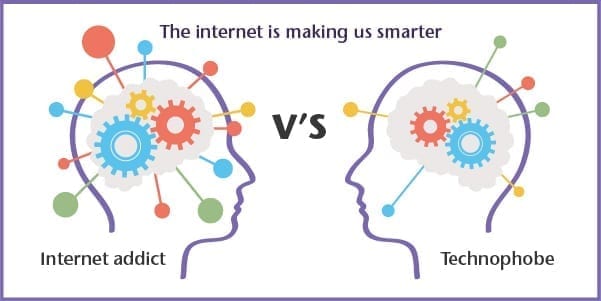Internet searches and brain patterns
It is widely thought that mental stimulation might improve the brain’s ability to function. In a study, Researcher’s Small 2009 and colleagues suggested that simply carrying out internet searches might increase brain functioning too.
The researchers looked at a small sample (24 participants) of middle to older aged neurologically normal participants, who were all from a similar level of educational background. Half of the participants had minimal past internet search experience and these people were called the Internet Naive group. The other half were allocated into a group known as the Internet Savvy group, so-called because they had extensive past experience in searching on the internet.
During the research test the participants were required to take part in two conditions. One was to carry out a novel internet search task, the other task was a reading activity where the text had to be read off a computer screen.
The internet naive group
Participants brain patterns during both the tasks were assessed. The Internet Naive group showed a similar brain pattern during both tests. The areas showing activation when they were completing the novel search task and when they were reading text from a screen, were the areas of the brain associated with reading, language, memory and certain visual areas.
The internet savvy group
As expected, when the savvy group were reading of text from a screen, the findings mimicked those of the internet naive group. Areas of the brain activated were again reading, language and memory. However, this group, who were familiar with carrying out internet searches, were found to have greater activation in other areas of the brain when it was their turn to do the novel internet search task.
Could internet searching be more stimulating than just reading?
When the researchers looked at which areas were being activated by the savvy group when internet searching, they found that decision making, complex reasoning and additional visual areas were being activated as well. In fact, there was a two times greater increase in activation of the major regional clusters in the net savvy group.
A richer sensory experience
Although the researcher’s acknowledge in their concluding comments that more research needs to be carried out (larger sample sizes and taking account of other lifestyle factors that might affect the results are some suggestions they make) it seems that internet searching may indeed work other areas of the brain. Small says it’s interesting to see how computerised technologies may be beneficial to improving brain function.
It’s exciting to think that internet experience may increase brain responsiveness and with today’s internet savvy young children we could be looking at a much smarter next generation.
